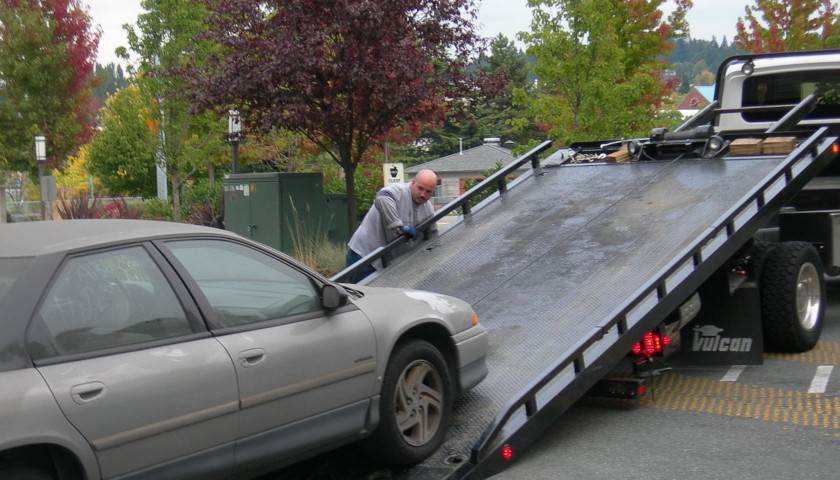Ohio lawmakers are weighing whether to ban towing companies from employing so-called spotters, a measure its sponsor says is necessary to protect Ohioans from excessive towing.
A spotter reports illegally parked vehicles that should be towed, removed or impounded. A towing company then impounds the vehicle and charges the owner when he or she comes to retrieve it.
If approved, House Bill 113 would impose a third-degree misdemeanor on a towing service that violates this prohibition, and violators could face a fine up to $500 and 60 days in jail. While the bill, if it becomes law, does not require any additional state funding, it could cost local jurisdictions should they incarcerate violators.
In testimony filed with the House’s Transportation and Public Safety Committee, the Towing and Recovery Association of Ohio (TRAO) said it believes spotting “is not a common practice in the industry, and that any problem such as the impetus to this bill is extremely rare.”
While the TRAO said it did not oppose the bill, the organization said the punishment should be a minor misdemeanor rather than a third-degree misdemeanor.
“While we do not see the use of spotters or recognize a widespread problem with the practice, we do agree and support the intention of the legislation,” Joe Hollabaugh, executive director of the Association of Professional Towers – Ohio (APTO), said in prepared testimony.
An amendment to the bill would exclude from the law private property owners or their agents who request towing services to remove a vehicle from a private tow-away zone.
State Rep. Tom Patton, R-Strongsville, filed the bill following a report from News5 (WEWS-TV) in Cleveland highlighting the use of spotters, excessive towing and companies overcharging owners of towed vehicles.
In testimony filed with the Transportation and Public Safety Committee, Patton indicated Maryland has the strictest anti-predatory towing laws in the nation. Their law requires photographic evidence of the violation and permits vehicle owners to retake possession of their car or truck if they arrive when a towing company is about to remove their vehicle, both of which are on the books in Ohio.
“The prohibition against compensating or employing spotters works to prevent any person or group of people from financially benefiting from excessive towing,” Patton said in testimony filed with the House Transportation and Public Safety Committee.
“Also, towing companies who do not employ spotters are already at a disadvantage to those who employ spotters,” Patton added. “House Bill 113 is a necessary piece of legislation to protect citizens from excessive towing and to prevent towing companies financially benefiting from the use of spotters.”




